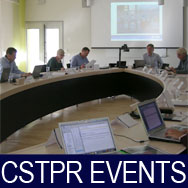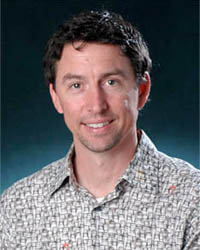Announcements
Max Boykoff Awarded ICJMT Grant on Media and Climate Change
October 11, 2012
CSTPR is pleased to announce that University of Colorado Boulder has funded an ICJMT (Information, Communication, Journalism, Media and Technology) project along with Beth Osnes, Rebecca Safran, Tom Yulsman and Ryan Vachon. The project "Climate Corps" will focus on providing curriculum development specific to climate communication.
Project Description
As we progress into the 21st century, climate change has become a defining symbol of our collective relationship with the environment. Diagnoses (what it is) and prognoses (what we could do) make for high-stakes, high-profile and highly-politicized science and policy deliberations. How we communicate these diagnoses and prognoses have the potential to polarize, alarm, numb or inspire, and, the spectrum of possible actions seen as ‘positive’ can then be contentious and varied. Our project seeks to enter productively into these spaces. Because of the unique and vibrant talents and the capacity and capabilities on campus regarding technology and digital media housed here at the University of Colorado-Boulder, we find ourselves uniquely equipped to guide students to explore their multi-modal, digital communication expressive capacity, their literacy in this medium, and their critical sophistication in assessing its content, effectiveness and appropriateness.
Building on the success of a course, Climate Change: Science and Expression through Video-Production and Presentation (ATLS 3519/EBIO 4460), taught by Rebecca Safran and Inside the Greenhouse: Using Media to Communicate Positive Messages about Climate Change (ENVS 3100), taught by Max Boykoff and Beth Osnes, these three professors request support to continue developing the idea of a ‘climate corps’ focusing on providing curriculum development specific to climate communication, a summer internship for students (possibly with the Red Cross in eastern Africa where Boykoff has a program established or in the Navajo Nation where Osnes is actively doing work with Eagle Energy for clean energy access), and some potential minor or certificate that could result from a combination of these. The proposed Climate Corps courses and internship program can contribute to the core curriculum for a possible degree in sustainability, climate, resource management or another yet-to-be-envisioned degree. Regardless, this will bring together a multidisciplinary group of students, some with deep subject knowledge in climate, some with strong creative/collaborative/communication skills, and some with proficiency with media/technology/social messaging. The idea of a Climate Corps is to bring together people from various occupations working towards a common direction.
This is situated in a larger initiative throughout our campus to integrate the theme of sustainability into the curriculum. Boykoff and Osnes have served on the core committee that developed and led a two-day workshop, Peak to Peak: Teaching Sustainability at CU, in August of 2011 and 2012, and Safran attended the 2012 workshop. Since Safran was recently awarded a National Science Foundation Career Grant, she initiated meetings between Boykoff and Osnes to see if they could generate some NSF support for their ideas that emerged from the synergy between their two courses, their work beyond the university, and their deep commitment to the issue of climate change. This highly-energized team also seeks NSF and other federal or private support and to collaborate with many other initiatives to support climate education and communication. Overall, the collective ability here to successfully take on the 21st climate-related challenges will rest on the ability of our students—our future leaders—to effectively communicate the complexity of climate change and solutions for adaptation.



